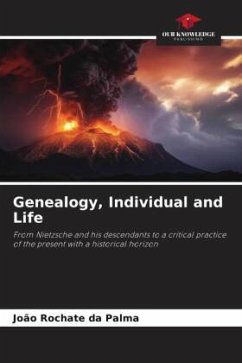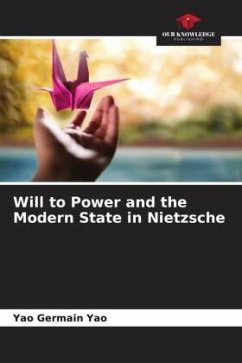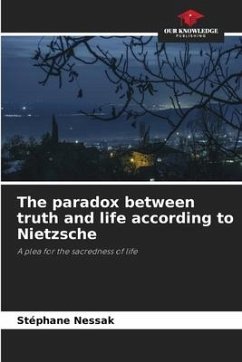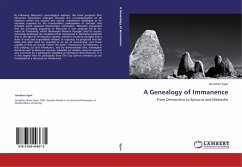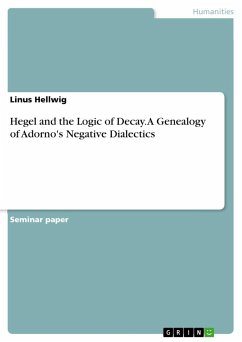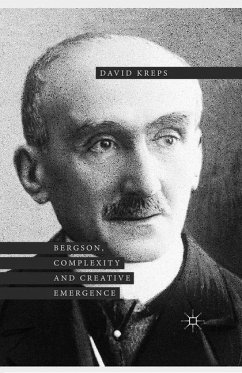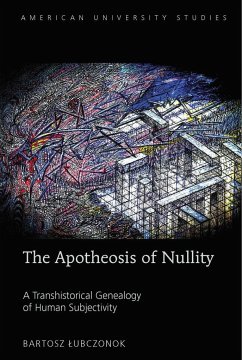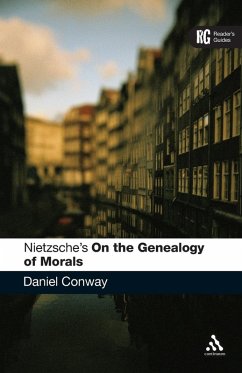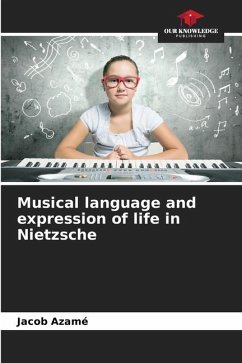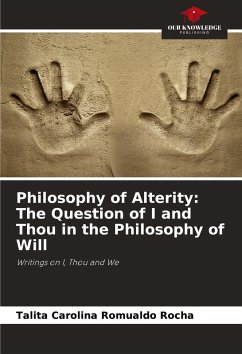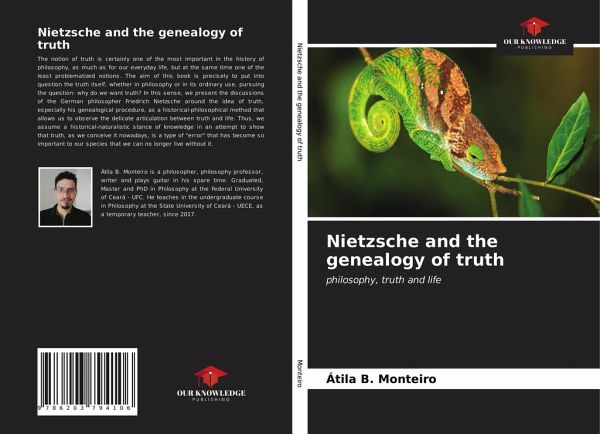
Nietzsche and the genealogy of truth
philosophy, truth and life
Versandkostenfrei!
Versandfertig in 6-10 Tagen
41,99 €
inkl. MwSt.

PAYBACK Punkte
21 °P sammeln!
The notion of truth is certainly one of the most important in the history of philosophy, as much as for our everyday life, but at the same time one of the least problematized notions. The aim of this book is precisely to put into question the truth itself, whether in philosophy or in its ordinary use, pursuing the question: why do we want truth? In this sense, we present the discussions of the German philosopher Friedrich Nietzsche around the idea of truth, especially his genealogical procedure, as a historical-philosophical method that allows us to observe the delicate articulation between tr...
The notion of truth is certainly one of the most important in the history of philosophy, as much as for our everyday life, but at the same time one of the least problematized notions. The aim of this book is precisely to put into question the truth itself, whether in philosophy or in its ordinary use, pursuing the question: why do we want truth? In this sense, we present the discussions of the German philosopher Friedrich Nietzsche around the idea of truth, especially his genealogical procedure, as a historical-philosophical method that allows us to observe the delicate articulation between truth and life. Thus, we assume a historical-naturalistic stance of knowledge in an attempt to show that truth, as we conceive it nowadays, is a type of "error" that has become so important to our species that we can no longer live without it.
The notion of truth is certainly one of the most important in the history of philosophy, as much as for our everyday life, but at the same time one of the least problematized notions. The aim of this book is precisely to put into question the truth itself, whether in philosophy or in its ordinary use, pursuing the question: why do we want truth? In this sense, we present the discussions of the German philosopher Friedrich Nietzsche around the idea of truth, especially his genealogical procedure, as a historical-philosophical method that allows us to observe the delicate articulation between truth and life. Thus, we assume a historical-naturalistic stance of knowledge in an attempt to show that truth, as we conceive it nowadays, is a type of "error" that has become so important to our species that we can no longer live without it.
The notion of truth is certainly one of the most important in the history of philosophy, as much as for our everyday life, but at the same time one of the least problematized notions. The aim of this book is precisely to put into question the truth itself, whether in philosophy or in its ordinary use, pursuing the question: why do we want truth? In this sense, we present the discussions of the German philosopher Friedrich Nietzsche around the idea of truth, especially his genealogical procedure, as a historical-philosophical method that allows us to observe the delicate articulation between truth and life. Thus, we assume a historical-naturalistic stance of knowledge in an attempt to show that truth, as we conceive it nowadays, is a type of "error" that has become so important to our species that we can no longer live without it.



